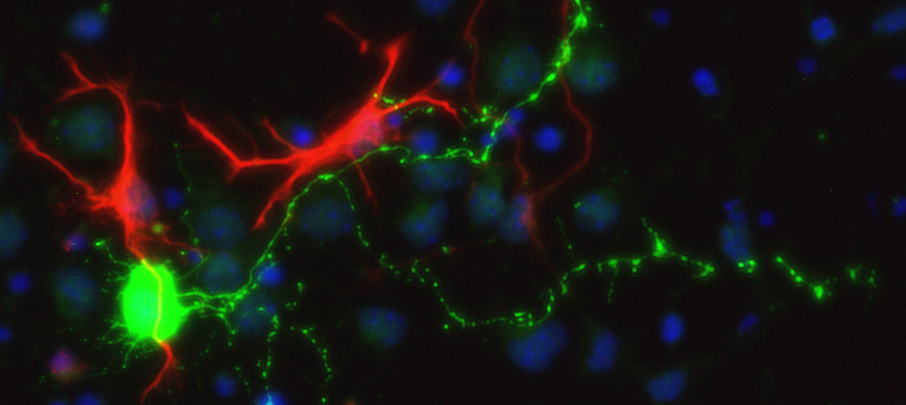Tag: Neurology and Neuroscience
-

Proteins on Neuron Surfaces Prove Pivotal for Communication
A cell-surface protein is essential for proper microcircuit function in the brain, according to a study published in Nature Communications.
-

Astrocytes Play Unexpected Role in Parkinson’s Disease
Astrocytes may play a protective role in Parkinson’s disease, slowing alpha-synuclein accumulation in neurons, according to a study published in The Journal of Neuroscience.
-

Inflammation Linked to Alzheimer’s
A new study provides a missing link between inflammation and protein deposits that contribute to Alzheimer’s disease.
-

Understanding Mitochondrial Dysfunction’s Impact on Neurological Diseases
A recent Northwestern Medicine study may improve the understanding of mitochondrial dysfunction and its impact on the development of neurological diseases.
-

Advancing Deep Brain Stimulation for Parkinson’s
A novel deep brain stimulation device significantly improved quality of life for patients with advanced Parkinson’s disease while also reducing common physical side effects from medication, according to findings published in The Lancet Neurology.
-

AI-Enhanced Approach Offers New Hope for Earlier Autism Diagnoses
A Northwestern Medicine scientist and collaborators have used an AI-enhanced precision medicine approach to combine multiple views of human brain development as they seek to provide a roadmap for what causes subtypes of autism spectrum disorder.
-

Inter-Organelle Contact Drives Calcium Transfer
Inter-organelle contacts drive calcium transfer from lysosomes to mitochondria, findings that lay out a possible therapeutic blueprint for neurological disorders.
-

Protein Unexpectedly Impacts Intracellular Transport in Neurons
Northwestern Medicine investigators have discovered that a specific protein known for its role in cell division also impacts the direction of intracellular transport in neurons.
-

Brain Synchronization Improves Odor Perception
Neurons in the olfactory cortex coordinate to boost the sense of smell when anticipating an odor, according to a Northwestern Medicine study.
-

Racial Residential Segregation Associated with Lower Cognitive Performance
African Americans who were exposed to segregation in their neighborhoods during young adulthood are more likely to have poor cognitive performance as early as midlife.






